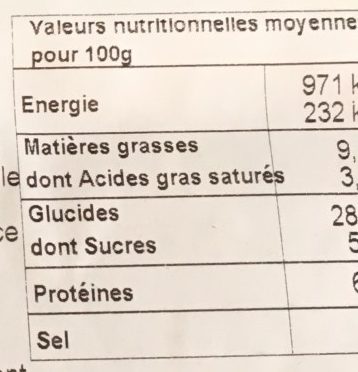Banh Bao au Porc - AGIS - 140 g e (2 * 70 g)
This product page is not complete. You can help to complete it by editing it and adding more data from the photos we have, or by taking more photos using the app for Android or iPhone/iPad. Thank you!
×
Barcode: 3366760040456 (EAN / EAN-13)
Quantity: 140 g e (2 * 70 g)
Brands: AGIS
Categories: Meats and their products, Meals, Meals with meat, Pork meals, Refrigerated foods, Refrigerated meals, Banh Bao
Labels, certifications, awards:
Green Dot
Origin of ingredients: France
Manufacturing or processing places: France
Traceability code: FR 44.072.002 CE - Herbignac (Loire-Atlantique, France)
Countries where sold: France, Switzerland
Matching with your preferences
Environment
Packaging
Transportation
Report a problem
Data sources
Product added on by kiliweb
Last edit of product page on by packbot.
Product page also edited by beniben, date-limite-app, openfoodfacts-contributors, patsyleo, yuka.ZklJOVBmdzlvTlZSeXM4ajRUTDV4ZDlQbnJLVFhXbWRNN0U2SUE9PQ.









